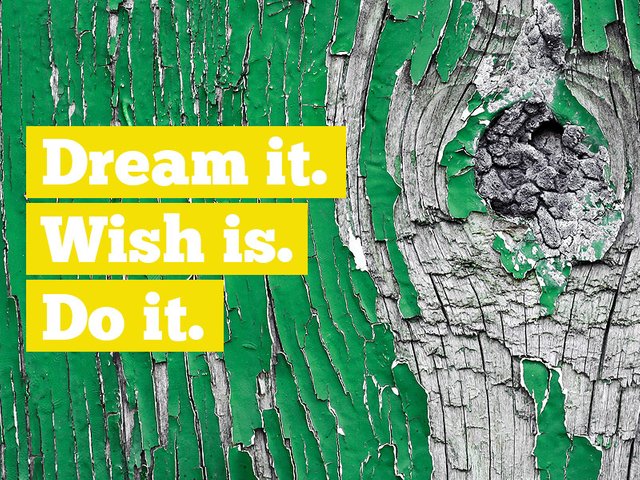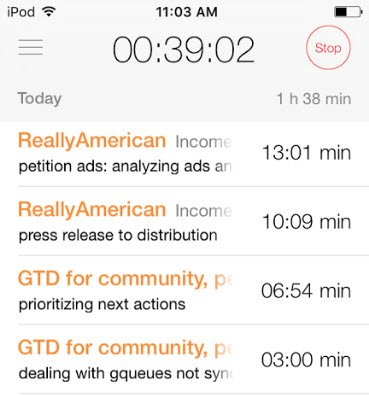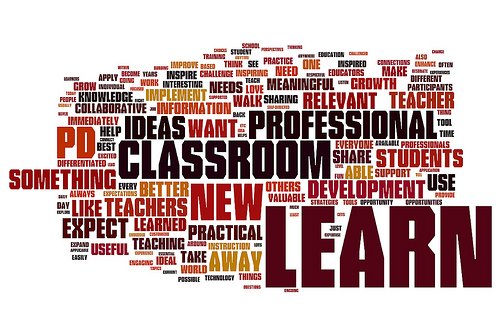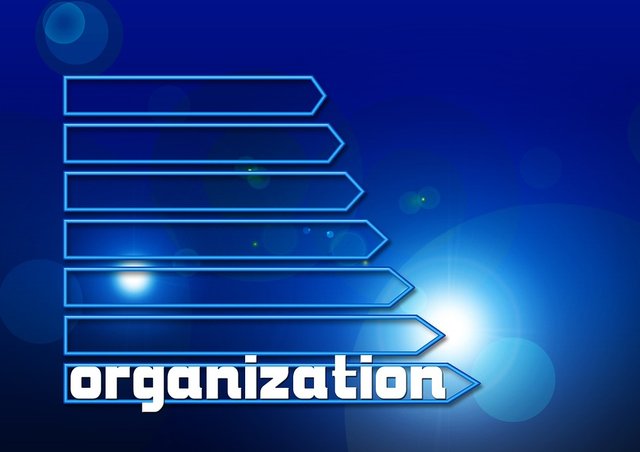Nathan Mackenzie Brown's 10 Secrets to Donating $10,000s to Charity While Attaining Lifestyle Freedom

My name is Nathan Mackenzie Brown, I’m contributing to causes I care about while living the lifestyle of my dreams and I want to help you do the same.
I’m an internet activist, marketing consultant and founder of ReallyAmerican.com. I earn about $45,000 a year while working just 24 hours a week. I have no debt and I own my home outright. I live very simply in an ecovillage that consumes 10% of the resources of the average American in certain key areas. I have made it my life’s work to solve the biggest problems facing society today and since 2013 I have donated over $29,000 to charity.
I want to use my experience to help you live a life that is fulfilling and guided by purpose. Each person’s vision is unique, but if you follow these ten strategies below, you too can enjoy the lifestyle of your dreams, while making a real difference in the world.
1. Determine your values and surround yourself with people who support your vision.

I decided what I wanted out of life early on. My college girlfriend played a key role in raising my awareness of the environmental problems we are facing on our planet and a short survey in the back of Voluntary Simplicity forced me to face how much poverty exists in the world. I realized that I would not be satisfied unless I was dedicating my life to solving these problems and in one way or another, almost everything I do contributes to doing this work.
My quality of life is immeasurably higher than what I might have had if I had chosen a different path. I spend approximately equal amounts of time working for income, doing community service and meditating. My commute to work is from my bed to my desk. My friends all live within a few yards of my house, and I have lots of time to hang out with them or play games. Most importantly, I have drastically reduced my negative impact on our environment, and I am helping others to do the same.
I recommend you spend some time soul-searching and decide what your core values are. Once you have an idea of your priorities, you can begin to make new choices that are more likely to take you where you want to go. In my case, I chose to relocate to Dancing Rabbit Ecovillage, an intentional community that has formed around shared interests and values related to social responsibility and environmental sustainability. Here my chosen lifestyle is possible, and my neighbors and I support each other in living simply. Whatever you dream is, it is also essential for you to find the right surroundings and the right companions in life to help you realize your goals.
Choose your mentors now, and learn everything you can from them. Certain authors have been very influential for me. As I mentioned, Voluntary Simplicity was instrumental in helping me recognize the lifestyle I wanted to pursue. Direct Pointing to Real Wealth and Paul Hawken’s Natural Capitalism, have had lasting impacts on my attitude about making money. The Better Angels of Our Nature gave me a lot of hope about the state of humanity, which helped inspire my philanthropy.
It takes determination to manifest your dreams, no matter what vision you have. Realizing my dreams has meant making tough choices and overcoming challenges again and again.
If you feel dissatisfied with your current lifestyle and want to follow in my footsteps, I invite you to visit the Ecovillage where I live and check it out for yourself. We host scores of guests every year through our visitor program.
2. Assess your current situation.

Once you have a clear vision of the lifestyle you want to pursue, I recommend that you develop a realistic understanding of your current situation. Your financial assets and attitudes towards money are likely to prove to be some of the biggest factors that help or hinder you as you work to achieve your goals.
I encourage you to have a particular frame of reference in mind as you assess your current situation. Use the Global Rich List to find your place in the international financial hierarchy. The point of this is for everyone in the industrialized world to recognize their own privilege. No matter how poor anyone in the industrialized world might consider themselves to be, we are all wildly wealthy by global standards. The average income in the Ecovillage where I live is around $9,000 a year, which seems like abject poverty to most in the USA. According to the Global Rich List, we are still in the richest 17% of the world’s population.
I believe it is important to understand if you live in the industrialized world, you have a golden opportunity compared to the rest of the world. I hope you can see the financial privilege that you have in global terms, and that you choose to use it to make a difference in the lives of others.
3. Track your time.

Image source: My iPod
If the lifestyle of your dreams is substantially different from the lifestyle you currently lead, a successful transition will require significant adjustments to the ways you are spending your time. Your time is by far your most valuable asset, and you must ensure that you are investing it in ways that bring you closer to realizing your dreams
I use Toggl to track my time. This free application allows you to select tasks from a dropdown menu and toggle between different tasks you are working on, making it much easier to track your time without interrupting your routine (this works both on your computer and a mobile device). After tracking your time for a while, you may realize that you are spending lots of time in ways that do not benefit you. Alternatively, you may learn that you are not spending as much time as you would like doing things that can improve your life in the long run, like reading a book to learn a new skill.
Your principal objective is to minimize time spent on low value and less enjoyable tasks while maximizing time spent on high value and enjoyable tasks. You will not need to track all of your time; only those tasks which you care significantly about or which have an appreciable impact on how you spend your day. This is how I ensure that the ways I spend my time line up with my long-term goals.
Specifically, I currently track the time I spend doing income work, community service, and a few other more minor categories. Each individual task, such as reading emails or networking with business clients, is given its own line item in Toggl so that I track each of them separately. I do not track the time I spend socializing or eating meals. These choices reflect what is important to me, and your priorities will probably be different.
Last year, tracking my time helped me to realize the detrimental impact that social media was having on my life. I got caught up in a new social media platform with an attractive ad revenue sharing scheme. By tracking my time effectively, I could see exactly how much I was neglecting my business and my interpersonal connections by spending lots of time playing on this social media platform instead. I was spending long hours obsessing over my stats and how to improve them, with not enough to show for it. Were it not for tracking my time on Toggl, it would have been much harder for me to take notice of how much time I was wasting and do something about it.
4. Prioritize professional development and understand the value of your time.

My lifestyle freedom would be impossible if I did not work consistently to increase the financial value of my labor. Time is a finite resource, and it is perishable. Maximizing your dollar value per hour of work will mean that you can meet your income needs while working fewer hours. This frees up time for other high value and enjoyable tasks that are important, but are easy to put off.
I consider it essential to pursue a diversity of professional training, both in terms of formal and informal education. An artist may become a master of craft, but if their technical mastery is not accompanied by complementary skills in general business management and marketing they may be unable to earn a living with their artistic genius. Conversely, a mediocre artist who understands how to manage their business efficiently while effectively marketing their work will meet with a higher likelihood of financial success.
Some key skills I recommend investing in are general salesmanship, financial management, task management, speed reading, and touch typing at a rate of 50-60 words per minute or higher. I always strive to find and implement new techniques and technologies that will either provide me with useful data or improve my overall efficiency.
The lynchpin of my strategy is a specific outlook on the relationship between time and money. I use a simple calculus to determine whether I want to do something myself, or hire someone else to do it for me. Basically, if I can earn more money in an hour than it costs me to hire someone else to do a task for one hour, then I will go ahead and hire someone else, unless I find the task highly pleasurable to do myself. If I earn less than it takes to hire someone, I will do the task myself, unless it involves expertise I do not currently possess and do not have time or inclination to learn to do with same degree of competence.
To implement this strategy, you must first obtain a true figure for your hourly wage. Add your base rate of pay to all other compensation you receive, such as a healthcare or employer contributions to a retirement plan. Subtract from that your total taxes and all of your costs for work-related necessities, such as transportation, business attire, child care, etc. Now divide this figure by the number of hours you spend on income work, which must include time spent commuting, reading business literature or any other unpaid homework. The result of this math is your real hourly wage, and you want to pay others to do things whenever the cost of doing so is lower than your real hourly wage.
Paying others to do tasks I do not enjoy allows me to spend more time working so that I can give more to charity, or do more community service. It also means I have more free time to pursue interests that are important to me, like meditation and spending time with loved ones.
For many, it is tempting to spend an inordinate amount of time trying to save money on tasks that take lots of time. This approach is costly in terms of lost earnings. For example, I can pay a friend $10.50 an hour to do yard work for me, while I work on my business earning $36.00 an hour. Offering financial support to friends, working at my own job and donating my excess to charity is a win-win-win scenario. Always strive to identify new ways to intelligently spend both time and money in order to save time, especially if you find that you do not have sufficient time available to do everything necessary to progress in realizing your goals.
5. Track your money.

For many people in the industrialized world, feelings of financial scarcity versus financial abundance have less to do with earnings per hour than with how you spend your money. A person making a million dollars a year while up to their ears in debt will feel impoverished, while some of my friends are very content and comfortable living on less than one percent of that.
I advise you to keep track of everything you purchase. I recommend Mint.com as an effective way to track your spending if you pay for a lot of things using a credit or debit card and don't care that much about tracking your income. I personally use QuickBooks for accounting purposes because it provides me with data that is important to me, but it is more complicated than Mint.
Focus on your three biggest expenses. Most likely, these will be: housing, transportation and food. Apply your creative energy to finding ways to permanently reduce your biggest expenses. For example, if your biggest expense is housing, consider downsizing your living quarters, joining a housing co-op, or seek out a housemate with whom to split costs. Take this example of someone renting a one-bedroom apartment for $800 a month, with utilities costing another $150. This person could move into a two-bedroom that is $1,000 a month plus utilities, and if they got a trustworthy roommate, they would save $375 a month. Developing this kind of relationship with someone may prove time consuming, but the payoff is enormous and likely to continue in an ongoing way, making it a highly valuable investment of time.
A personal vehicle is likely to be your next highest expense. One of the keys to the freedom I enjoy has been living without a car; I have never owned one. According to the Population Reference Bureau 2013 US Census Bureau and American Communities Survey, the average commute time in the USA is 26 minutes each way – basically an hour every day. How much time and money would you save by arranging your life so you don’t have to commute? I have always found living without a personal vehicle to be a great decision, especially at Dancing Rabbit Ecovilage, where I share four cars with about fifty other people.
People often spend time and energy on short-term strategies that do not benefit them much in the long-run. For example, spending thirty minutes a week cutting coupons might yield a savings of 5% on a grocery bill of $300; that might work out to $15 worth of savings for two hours of labor spent clipping coupons. Spending those two hours every month learning skills that would increase the value of your work would pay much higher dividends over time.
In my case, I live in a tiny cabin that cost me around $35,000 to purchase and fix up. I share a kitchen and showering facilities with others, so that I did not have to build those facilities for myself. Before moving to Dancing Rabbit, I lived in a cohousing community in Washington D.C. while working as an au pair to cover room and board, which left me lots of time to work on developing my online business. I lived ninety seconds away from a metro station. Nowadays my biggest living expense by category is food, which is a goal I believe everyone should strive for. I spend $3,400 a year on food, while ensuring I have a balanced and nutritious diet with a minimum of eating out.
6. Make your money more valuable.

There are three categories of purchases in the world. There are: consumable purchases, depreciable purchases and appreciable purchases. Your goal should be to shift your money away from consumable purchases and into appreciable ones. Doing so will increase the value of your money, accelerating material gains on your road to achieving lifestyle freedom and contributing to causes you believe in.
Consumable purchases are expenditures of money that immediately lose all value, because the item that has been paid for is consumed at the time of purchase. Rent is one of the biggest consumable purchases. Other examples include expenses like electricity and water, fuel, food, travel and entertainment.
Depreciable purchases are expenditures that start out having a given value, but decrease in value over time. Personal vehicles, high ticket appliances and all kinds of reusable items are depreciable purchases. People often think saving money is a virtue, but saving is really just a depreciable purchase because your money is sitting idly and losing value due to inflation.
Appreciable purchases are expenditures that increase over time. Real estate, stocks, bonds and mutual funds are all appreciable purchases, and sometimes the way an asset is classified depends on how it is used. For example, a personal computer would normally qualify as a depreciable asset, but if used for professional development and income work, it could yield a net gain and therefore qualify as an appreciable asset.
Shifting to mostly making purchases that will gain value over time rather than lose value will take some creativity and work on your part, but the transformative effect on your financial situation will be profound. The goal is to spend money on appreciable purchases whenever possible. If it is not possible to meet your needs with an appreciable purchase, your next choice is a depreciable one. If a depreciable purchase still will not meet your needs, then your last resort is a consumable purchase. Buying a home, for example, is generally preferable to renting one. Buying a computer to enhance your professional development is preferable to buying a computer for playing video games and surfing the web.
The most important appreciable purchase I have ever made is my computer, along with the software and training I use for running my business. That said, most of my appreciable purchases are paid for with my time rather than money. Time spent investing in my own knowledge in the form of studying successful marketers has yielded massive returns for me.
I also strongly advise hiring an excellent accountant to minimize your tax burden. My accountant is David Hammer; he operates nation-wide. Minimizing your tax burden may take time to bear fruit, but you will yield a huge return on investment over your lifetime. I caution you, there are certain criteria to keep in mind before you talk to an accountant, however. If you are buying a home, you are self-employed, you have an employer that offers a retirement program, you are saving for college and/or paying tuition or you are donating more to charity than your standard tax deduction, it is definitely worthwhile to consult with an accountant to reduce your tax burden. If you do not meet any of those criteria, then you are probably better of filing your own taxes until you start doing any of the things I just mentioned.
7. Be organized.

Getting Things Done changed the way I think about time management. One of the concepts in the book is that you cannot manage your time; you can only manage your tasks. When I first started managing my tasks, I saw an increase in my follow-through. I stopped accidentally dropping balls. I got to a point that if I dropped something, I did so intentionally. Managing my tasks more effectively helps me to identify areas where I am overcommitted. I can also more easily see important tasks that I am neglecting. It took me time to implement a comprehensive strategy, but I estimate that properly directing my energy has resulted in a two to threefold increase in my productivity.
I recommend using a variety of applications simultaneously to manage your tasks more effectively. I make use of a suite of tools to increase my efficiency by integrating my email, calendar and task tracking functions. I rely on Boomerang to schedule reminders to follow up on important emails and apply reminders to messages in my inbox. I use GQueues to track my tasks. A web application called Schedule Once allows my friends, colleagues and business contacts to schedule time to meet with me by following a link available in my email signature. Schedule Once dovetails seamlessly with Google Calendar so that I avoid double-booking myself while minimizing the time I have to spend scheduling with others. I use Google Drive a lot to work collaboratively on documents with others. I use an iPod as a mobile device so that my task list, schedule and time tracking app are always available at my fingertips.
8. Set goals for giving to worthy causes and investing in socially responsible businesses.

Lifestyle freedom is vacuous without an overriding purpose. I have made it my purpose in life to use my privilege to help address society’s biggest problems and supporting worthy causes is a big part of that for me. Lots of people who possess the sort of financial privilege I do might squander it on luxuries and get locked into the same rat race as everyone else. Rather than using my privilege to increase my consumption, I have used it to create a lifestyle in which I can meet my own needs while donating a substantial portion of of my income to charity.
My great-aunt left me money that was intended to pay for my college expenses, but my father is a college professor so my tuition was covered. This meant the money my aunt left me covered all my living expenses when I was in college and there was still $55,000 left over that I received when I turned 25. Adjusted for inflation, this unearned privilege totals $306,000. My goal is to donate at least this much to charity over my lifetime.
Since 2013 I have donated over $29,000 to worthy causes, and invested over $10,000 in renewable energy and other socially responsible business ventures. During this time I have volunteered hundreds of hours to community service in my ecovillage. I have mentored young people and I have helped neighbors and friends by facilitating professional connections. Lifestyle freedom includes having time and resources to devote to making our world better, and I invite you to consider ways that you can make supporting charity a part of your unique vision.
I have a special passion for improving the effectiveness of charities. Before you give any money (or give any more money) to charity, I want you to consider the effectiveness of your donations. I really like Poverty Action Lab, an MIT research group that conducts randomized trial evaluations to assess the effectiveness of programs designed to combat poverty. Once they have done their research, they promote programs that are having the greatest positive impact. Another great resource is a Ted Talk that explains the need to evaluate charities based on the impact of their work rather than simply how much money they spend “on a cause” – this is extremely important when determining where to donate money.
In order to find investments that fit your values, I recommend SocialFunds.com as a place to start. Social Funds offers useful information about socially responsible investing, particularly in mutual funds. They have a great database you can search through quickly to find the mutual funds that best match your financial, social and environmental investing goals. I don’t believe we can create a truly just and sustainable global society if we make money investing in companies that hurt people and the environment and then give to charities to try to undo the damage of these irresponsible companies. We need to make money investing in companies that respect people and the ecosystems we depend upon, and use charity as a way to address problems that businesses simply can’t profit from solving.
9. Work on yourself.

I owe much of my professional success to the personal work I have done. One of the best decisions I ever made was to invest time and money in high quality therapy. In my late 20s I was debilitated with back pain and unable to work, and I spent thousands of dollars trying to obtain a medical solution to an ambiguous medical diagnosis. Through Coherence Therapy, I came to realize that my crippling pain was a psychosomatic symptom related to emotional stress. Once I had experienced emotional closure to the cause of my stress, my pain dissolved and I was able to work again. Without this emotional work, I have a hard time imagining where I might be in my life now.
Another struggle I had early on was with trying to eliminate unwanted behaviors. Trying to do so by sheer force of will left me feeling like Sisyphus, the figure from Greek mythology who was doomed to an eternity of rolling a rock uphill, only to do it again after reaching the peak - except that I could not even get my boulder to budge. For me, a major breakthrough came through meditation. I do two hours every day of Vipassana meditation as taught by S.N. Goenka and have done so consistently since August of 2013. This discipline has given me valuable mental clarity and strengthened my ability to focus my attention. I learned to notice when I was doing something out of habit, and I found it easier to make better choices and stick to healthier patterns of behavior. Suddenly my stubborn boulders became lighter and possible to roll.
More recently, participating in my local Men’s Group has had an incalculable positive impact on my life. Our Men’s Group is heavily influenced by the Mankind Project which strives to establish a strong container for men to connect emotionally with one another and seek help with their problems. We share our experiences and observations, with the intention of empowering ourselves and other men to grow, become stronger and to act with compassion, accountability and integrity. Woman Within is an organization similar to the Mankind Project that is for women.
A common narrative in our culture is that this kind of support is a sign of weakness, but the benefits you receive from the strategies I am offering will eventually plateau if you are working alone. Do not underestimate the value of investing in your ability to process your emotions and reprogram your unconscious beliefs. Connecting with others is a crucial step in your growth as an individual. In the long run, these connections will be instrumental in your continual development, and without doing this work, it will be much harder to fully realize your life vision.
10. Protect your free time.

One of the most important things I have learned is to draw boundaries around how I spend my time and then work to honor those boundaries.
I protect my leisure time, for example, by fasting from work and computer usage on most Saturdays. I do not work after dinner, with rare and carefully chosen exceptions. I frequently schedule time to connect with my romantic partner, to keep in touch with my family and strengthen connections with my friends and neighbors.
I block out time once a week to update my task lists and ensure that my community service and business stay on track. I will also reserve an afternoon occasionally to complete a crucial task that lies outside of my standard routine, like reconciling my books.
I do not own a mobile phone, which means people get a hold of me when I want, not when they want. I can step away from work entirely any time I want by simply turning off my computer.
Wouldn't you like to have this sort of freedom while contributing to the well being of others?
Following these 10 tips can help you get there and the sooner you start the better!
Congratulations @nathanbrown! You have received a personal award!
Click on the badge to view your own Board of Honor on SteemitBoard.
For more information about this award, click here
Congratulations @nathanbrown! You have received a personal award!
Click on the badge to view your Board of Honor.
Congratulations @nathanbrown! You received a personal award!
You can view your badges on your Steem Board and compare to others on the Steem Ranking
Vote for @Steemitboard as a witness to get one more award and increased upvotes!